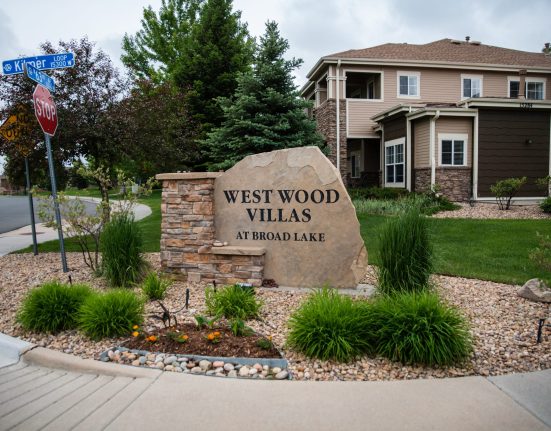Image source, Getty Images
- Author, Kevin Peachey
- Role, Cost of living correspondent
First-time buyers are facing the toughest conditions in 70 years to buy a home, according to a report by the Building Societies Association (BSA).
Those buying a first home were increasingly reliant on having two high incomes or receiving parental support, it said.
Others have been priced out and “stuck” in renting from private landlords.
Building societies account for a quarter of mortgage lending, and their association suggests the market needs to change to allow more people to buy a home.
Mortgage rates are relatively high compared with the last decade, and the cost of renting has also soared.
Latest official figures showed private rental costs in the UK have risen by 9.2% in the last year.
‘Broken’ market
The BSA’s report, written by housing analyst Neal Hudson, suggests home ownership among younger people has been in decline over the last 20 years.
First-time buyers faced the dual affordability struggle of raising a deposit to buy a home as well as paying a mortgage.
Although the cost of a deposit had been difficult for some time, the recent increases in mortgage interest rates had tightened the squeeze, the report said.
Paul Broadhead, head of mortgage and housing policy at the BSA, said: “Becoming a first-time buyer is possibly the most expensive it has been over at least the last 70 years, but a properly functioning housing market is dependent on first-time buyers being able to afford their first home.
“New thinking and radical changes are needed.”
At present, buying a home required two above-average incomes, the report said. House price growth has been higher than earnings growth for some time.
Separate figures published on Monday by the property portal Rightmove suggest much of the activity in the housing market since the start of the year was among large, four-bedroom homes.
They will be out of reach for the vast majority of first-time buyers, but Rightmove also said asking prices were starting to accelerate again.
Living arrangements
The Resolution Foundation think tank recently said that the most common living arrangement for an adult aged between 18 and 34 in 1997 was being in a couple with children, but now it was living with your parents.
Half of first-time buyers in their 20s were getting help of an average of £25,000 from their parents, it said.
In January, Sir Howard Davies, who chairs NatWest, was criticised for suggested it was not “that difficult” to get on the housing ladder. He later said he meant access to mortgages was easier.
But the BSA report suggested otherwise, and argued that more “flexibility” was required on regulation such as the limits on lending when borrowers can only pay a small deposit.
Wider issues are facing first-time buyers, such as concerns over rising house prices in rural areas.
The County Councils Network said house prices in rural counties were the most unaffordable outside London.
Sophie Brown, who rents in the Cotswolds, told the BBC in March that she was priced out of buying in the area.
“A lot of people are coming from London with their second homes … pricing out the normal everyday person with a normal job,” she said.
“Local people are having issues trying to buy houses.”
The BSA said whichever government was in power after the general election should commission a review of the first-time buyer market and use all its powers to help those wanting to buy their first home.
Ways to save money on your mortgage
- Make overpayments. If you still have some time on a low fixed-rate deal, you might be able to pay more now to save later.
- Move to an interest-only mortgage. It can keep your monthly payments affordable although you won’t be paying off the debt accrued when purchasing your house.
- Extend the life of your mortgage. The typical mortgage term is 25 years, but 30 and even 40-year terms are now available.







